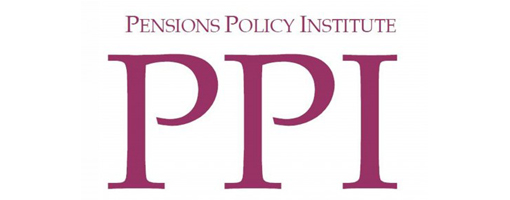Concerns over the impact of rising inflation on pensioners have persisted after figures from the Office for National Statistics (ONS) revealed that the Consumer Price Index (CPI) rose to 4.2 per cent in October, the highest level in a decade.
Concerns were previously raised over the impact of rising inflation on pensioners, particularly in light of the government's one-year suspension of the state pension triple lock.
These fears have been reiterated following further increases in inflation, with Baroness Ros Altmann warning that the rising rates will leave even more pensioners in “desperate straits as they try to pay their basic bills during the coming months".
Altmann also highlighted the latest CPI figures as confirmation that the “cost of living crisis already engulfing pensioners and the shameful decision to increase their state pensions by just 3.1 per cent next year will plunge more elderly people into poverty”.
She stated: “The House of Lords gave the government and MPs the chance to think again and they refused to accept our compromise proposals which would have helped correct for the anomalies of Covid impacts on the earnings and CPI statistics.
“Instead they have ploughed ahead with the clearly insufficient September CPI number which was artificially lowered by the pandemic policies.
“Pensioners have been left without the protection they were promised and more will struggle to make ends meet as inflation keeps rising. With rising energy costs, I fear many of the poorest will be even less able to afford to heat their homes adequately over the winter.
“Those pensioners who do not depend on the state pension alone may be better off but millions – most of them women – have nothing else to fall back on and never had a chance to build another pension.
“To take away their much-needed and promised protection, knowing inflation pressures are rising, seems unjustifiable, especially when money was found for reducing bank, alcohol and other taxes.”
Aegon pensions director, Steven Cameron, echoed this, warning that those on fixed incomes, such as pensioners relying on state pension, will face a “real challenge in meeting higher costs in the coming months, particularly with the government scrapping the state pension triple lock next year”.
“This will mean the state pension’s 3.1 per cent increase in April will likely be far less than the rise in the cost of living at that time,” he explained.
“The Bank of England have so far held off raising interest rates to ease the cost of living squeeze, but as the full post-pandemic picture becomes increasingly clear, the base rate may soon be lifted from its historic low.”
Those who rely on the state pension are not the only ones facing concerns, however, as Interactive Investor head of pensions and savings, Becky O’Connor, warned that higher inflation could erode savings to the point where it becomes hard to justify keeping anything but the minimum.
“Inflation also makes it harder to find growth investments at an acceptable level of risk,” she continued. “It also erodes the value of pension funds for younger workers trying to build up a pot that will see them through retirement.”
Adding to this, Canada Life technical director, Andrew Tully, said: “We could also see people start to deprioritise their pension saving as wages are made to stretch further to cover rising costs.
"If inflation continues to grow unchecked we could start to see the undoing of some of the great strides forward made by auto-enrolment.”
Latest News
-
OBR analysis reveals potential impact of salary sacrifice changes
-
Strong funding levels continue as endgame landscape reshaped by innovation
-
Harwich Haven Authority Pension Fund finalises £45m buy-in with Royal London
-
GAD publishes LGPS gender pension gap reporting guidance
-
DB scheme funding levels continue to improve heading into 2026
-
News in brief - 6 February 2026
Private markets – a growing presence within UK DC
Laura Blows discusses the role of private market investment within DC schemes with Aviva Director of Investments, Maiyuresh Rajah
The DB pension landscape
Pensions Age speaks to BlackRock managing director and head of its DB relationship management team, Andrew Reid, about the DB pensions landscape
Podcast: From pension pot to flexible income for life

Podcast: Who matters most in pensions?

In the latest Pensions Age podcast, Francesca Fabrizi speaks to Capita Pension Solutions global practice leader & chief revenue officer, Stuart Heatley, about who matters most in pensions and how to best meet their needs
© 2019 Perspective Publishing Privacy & Cookies










Recent Stories